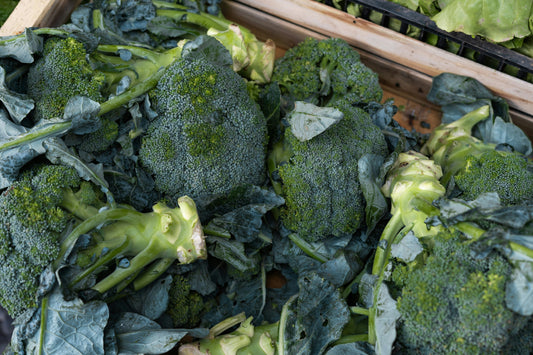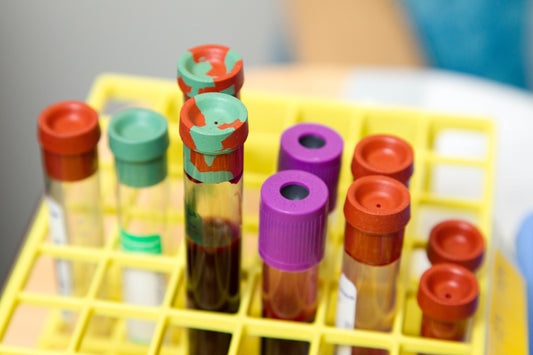Every day new ways to lose weight or improve your health hit the headlines. With so much unregulated information out there it’s hard to know what to believe and who to trust. Dietary myths have always been around and are built on simple ideas with limited or no scientific backing. Always check how reputable the source of your information is. If they are unqualified or trying to sell you something, they are most likely not a very reliable source. Below are 5 myths that I commonly run into at my practice with explanations as to why they should not be believed or followed.
‘Eating smaller, more frequent meals boosts our metabolism and helps us to lose weight’
Metabolism is a term used to describe all the life-sustaining chemical reactions that occur within our bodies. These metabolic processes lead to growth, reproduction, and maintenance, and also allow us to respond to our environment. All chemical reactions, including digestion and the transport of substances from cell to cell, are part of you metabolism. This myth is based on the idea that whenever we eat food, we burn energy in order to break it down and absorb the nutrients. Therefore, if we eat more frequently, we’ll boost our metabolism more often, leading to more calories being burnt. In reality, it’s not this simple. This is because the thermic effect of food (TEF), which is the amount of energy we expend to process food for its use and storage, is directly proportional to how much and what we eat. So, eating six times a day will increase your metabolism six times that day, but three larger meals would provide three proportionally larger boosts. So, by the end of the day, regardless of how many meals you ate, the same amount of energy would have been used. This TEF factor only accounts for about 10% of all energy used throughout the day, so don’t rely on this to help you shift body fat. However, if you find eating smaller meals more frequently throughout the day works better for you, by all means, go for it - just don’t do it as means to shift your weight.
‘The ketogenic diet will work for everyone’
The ketogenic diet is similar to the Atkins diet in that it restricts carbohydrates and promotes a larger fat intake. Although there is evidence that this diet may offer some benefits for certain people, there is still a lot of debate surrounding this diet and its long-term effects. The ketogenic diet restricts carbohydrates so much that you begin to use your fatty acids for energy instead of sugar (glucose). When you break these down your body produces a by-product known as ketone bodies. When these become elevated beyond the normal level, your body is in a state of ketosis - hence the name of the diet. From a hormonal perspective, no carbohydrate intake is absolute madness. Carbohydrates are essential for healthy hormone production and I have seen too many women jump on this ketogenic bandwagon and wave their periods goodbye. This in itself is a pretty big indicator your body isn’t happy. In addition, the ketogenic diet can often lead to nutrient deficiencies including selenium, magnesium, phosphorus, and B vitamins, and it can lead to liver damage. Having such an increase in fat consumption means the liver has to work overtime. A study completed in 2017 found those who followed a low carbohydrate diet had raised levels of two plasma compounds that are big indicators of liver damage. So although the ketogenic diet has shown some amazing effects on people suffering from conditions such as epilepsy, it’s not for everyone. If you’re wanting to try it, I would advise speaking to a qualified practitioner prior.
‘It’s all about calories in vs. calories out’
This is an age-old myth. Yes, it’s simple to understand and makes some sort of sense, but unfortunately, it’s not true. The human body is a highly complex biological system and there are so many factors to consider when it comes to your body fat mass. Your genetics, sex stress and thyroid hormones and various external factors all have a huge impact on your fat mass. For example, let’s look at insulin. Insulin is released by the pancreas primarily in response to the consumption of carbohydrates. Once in the bloodstream, it allows glucose (the breakdown product of carbohydrates) to move into our cells so we can produce ATP (our energy source). If there is a lot of insulin, it’s a sign to our body there is a lot of glucose, and therefore energy, available. As a result, our body holds onto its fat stores, making it very difficult to lose that little bit of extra belly. However, insulin levels are not determined solely by carbohydrate intake - that would be far too simple. Insulin levels are dependent on a host of factors, including existing conditions (e.g. PCOS & diabetes), estrogen, leptin, and growth hormone levels, and muscle mass. Insulin is just one of the many elements that influence our ability to gain or lose weight. So don’t get caught up in calorie counting, because there is so much more to it than that.
‘You should detox regularly’
Detox diets are short-term dietary interventions that claim to rid your body of toxins and to provide you with health benefits including weight loss and an energy boost. Some even claim to improve certain medical conditions. A typical detox diet involves fasting for a period of time, followed by a strict diet of fruits, vegetables, juices, and water. A study undertaken in 2009 found that the companies who were promoting these detox diets were not able to name one toxin that their diet supposedly removes, nor were they even able to provide any evidence that their products worked. Not so surprisingly, the science to back their claims isn’t there either. Our bodies have evolved with incredible detoxification systems. Our lungs, kidneys, liver, spleen, and skin work around the clock to remove harmful substances from our bodies. If we follow a detox diet, important food groups are restricted or often even completely eliminated. This deprives these organs of the nutrients they so desperately require to undertake their detoxification processes. The best way to support detoxification is by loading up on foods that help to promote optimal function of these organs, such as cruciferous vegetables, dark leafy greens, citrus fruits, ginger, and garlic. Reducing your intake of substances that add extra load to these organs such as alcohol and processed sugars, will also help to support your detoxification centers. Don’t waste your money on expensive juices that claim to change your life. Look at your diet and work on making little changes each week.
‘Fresh is better than frozen’
Fresh produce has a natural appeal for most people, but don’t let this put you off the frozen section. Fruit and vegetables that have been frozen are often found to have the same, if not more, levels of nutrients. When produce is picked for freezing it is vine-ripened, as opposed to ripening during transport. Once vine-ripened it undergoes minimal processing, such as blanching, and is then frozen. When produce is captured and frozen in its prime, the minerals and vitamins are retained. Although these nutrients degrade over time, it happens much slower compared to their fresh equivalents. One study found vitamin C levels were higher in frozen corn, green beans, and blueberries compared to their fresh equivalents. They also found more riboflavin (a B vitamin) in frozen rather than fresh broccoli. When produce is sold fresh, it loses nutritional content during transit and shelf time. So when buying fresh it’s important to try and buy local and buy frequently in order to have produce packed with nutrients.
Be very careful when reading the ‘advice’ that floods the internet. Everything that ‘health coaches’ and influences state as fact should be taken with a grain of salt. If you require some advice, try to seek it from experts who spend extraordinary amounts of time (and money) to provide the best evidence-based care to their clients.




